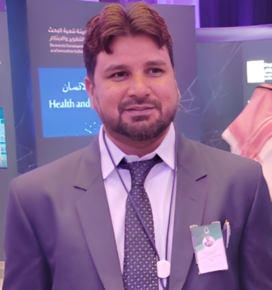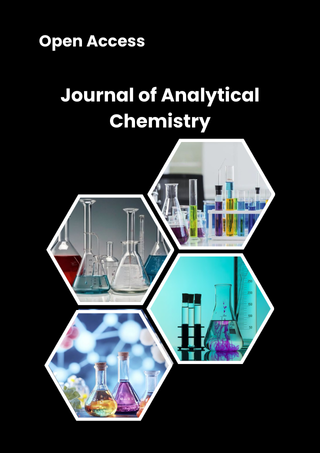Editor-in-Chief

Dr Stella Girousi (PhD) [ Profile Link ]
Editor-in-ChiefDepartment: Analytical Chemistry Laboratory
Affiliation: Analytical Chemistry Laboratory, Aristotle University of Thessaloniki, Thessaloniki
Designation: Professor
Country: Greece
Biography
Prof. Dr. Stella Girousi is Professor of Analytical chemistry (member of the academic staff since 1999), currently serving in the Analytical Chemistry Laboratory at the School of Chemistry of the Aristotle University of Thessaloniki, Greece. She obtained her phD in Analytical Chemistry (1996) her research interests involve the development of innovative analytical methods, particularly voltammetric techniques for the determination of metals using various electrodes, including mercury, carbon, and mercury/bismuth thin film electrodes. Her research interests encompass the development and application of electroanalytical methods for analyzing biological, environmental, and food samples, as well as the detection of nucleic acids, proteins, and genotoxic compounds. Prof. Girousi has made significant contributions to the development of enzymic and electrochemical DNA biosensors, investigating drug-DNA interactions, DNA methylation, and the recognition of micromolar compounds using nanomaterials and screen printing technology. Throughout her career, Prof. Girousi has published numerous scientific articles in prestigious journals, showcasing her expertise in electroanalytical methods and biosensors. Her work has had a substantial impact on the fields of environmental analysis, pharmacology, and biotechnology.

Dr Akil Ahmad (PhD) [ Profile Link ]
Editor-in-ChiefDepartment: Department of Chemistry
Affiliation: Chemistry, Prince Sattam Bin Abdulaziz University, Al-Kharj
Designation: Assistant Professor
Country: Saudi Arabia
Biography
Dr. Akil Ahmad currently working at Prince Sattam bin Abdulaziz University, Saudi Arabia as Assistant Professor in Chemistry and having the experience of seven years as Research Fellow, Teaching Fellow, Postdoc and Visiting Researcher from Universiti Teknologi Malaysia, Universiti Sains Malaysia, University of KwaZulu-Natal, South Africa and Universiti Kebangsaan Malaysia, Malaysia. My research work in Chemical Sciences and Environmental Chemistry areas for toxic metals, dyes and pharmaceutical residues removal by using batch and column method coupled with analytical techniques, is internationally recognized. The adsorption technologies developed for the removal of pesticides, dyes and toxic metal ions from wastewater are of utmost importance. Research focuses on synthesis and fabrication of nanocomposites, electrode materials, microbial fuel cells, preparing and synthesizing various polymeric sorbents (Chelating materials, low-fouling nano filtration membrane, Graphene Oxide and CNT) using different organic moieties, and bio-adsorbents for the remediation of environmental pollutants (trace metals, dyes, pesticides) from water and wastewater. I have published more than 200 articles including chapters, reviews, technical reports and papers. I have also edited Elsevier and Springer Nature books.

Dr Kezhen Qi (PhD)
Editor-in-ChiefDepartment: Department of Pharmacy
Affiliation: Pharmacy, Dali University, Dali city
Designation: Professor
Country: China
Biography
Dr. Kezhen Qi got his Ph.D. degree in material chemistry and physics from Nankai University, China. Currently, he is a senior scientist at College of Pharmacy, Dali University. His research expertise is in semiconductor materials for environmental chemistry and energy conversion, with particular focus on photocatalysis. He has published nearly 100 papers in refereed journals, including Chemical Engineering Journal, Journal of Catalysis, Journal of Colloid and Interface Science, Chinese Journal of Catalysis, and so on. He has filed 5 patents on new functional semiconductor nanomaterials, which are promising for development of new energy and environmental application, etc. He has receives many research grants including National Natural Science Foundation of China, Postdoctoral Fund of China and Science Founding of Liaoning Province. He was honored with a Distinguished Young Scientist of Liaoning Province.
Indexed In
DOAJ
CrossRef
PubMed
MEDLINE
ResearchBib
OAJI
Sindexs
EBSCO A-Z / Host
OCLC - WorldCat
Journal Flyer


